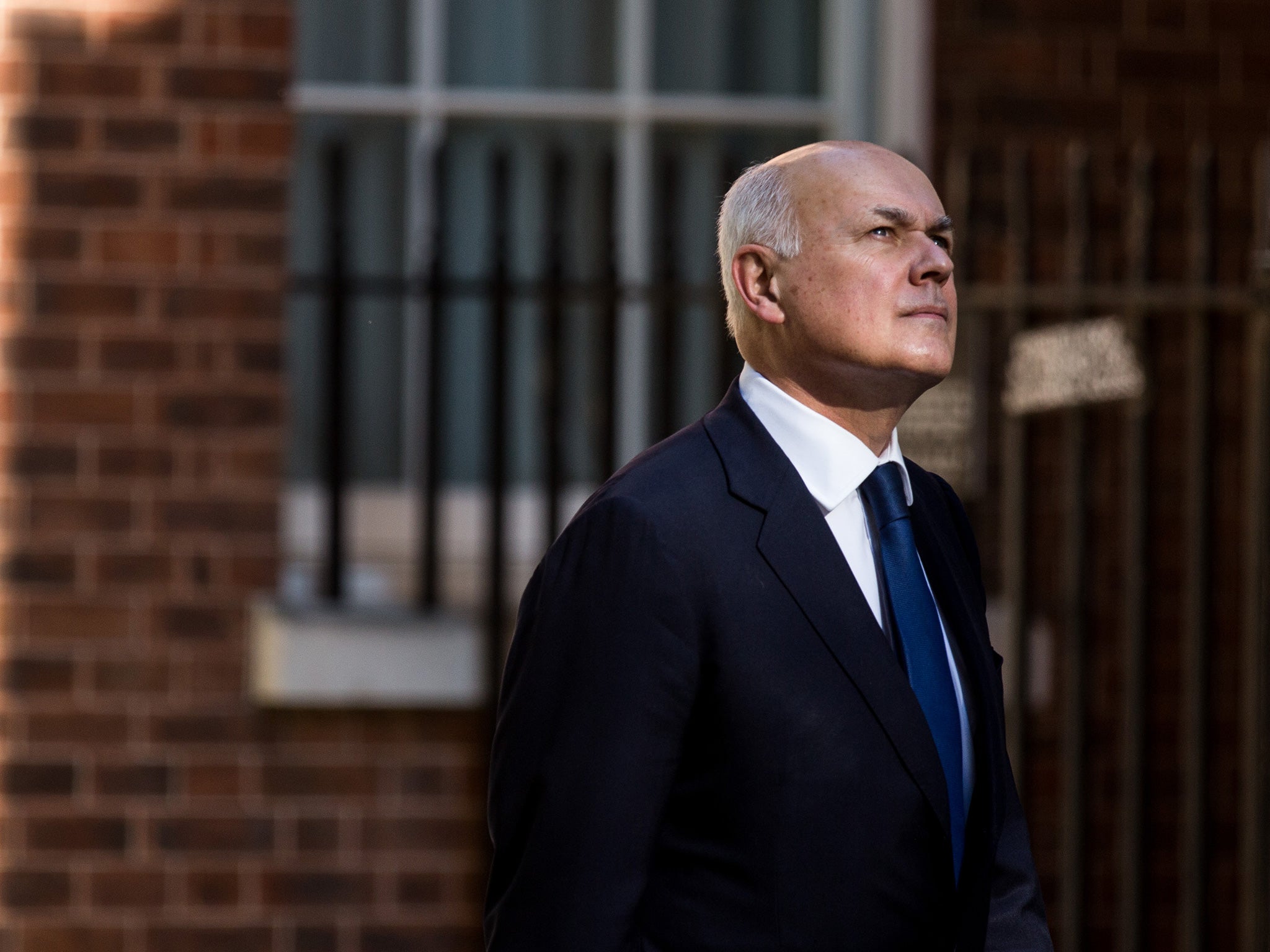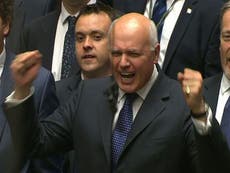Yes, we do need a conversation about sickness benefit. But not the one the Tories have in mind
Mr Duncan Smith seems to think that shame and poverty are a magic balm which, if applied forcefully enough to disabled people, will become a cure for all conditions


Iain Duncan Smith has said in a speech today that he is planning to reform rules on sickness benefits in order to push more people into work. The Department for Work and Pensions minister has not revealed precisely what policies he hopes to achieve this by but instead has said that for now he hopes to start a “conversation” about welfare reform and disability.
Of course, if Mr Duncan Smith had any understanding of how his welfare cuts affect people, he’d know this is a conversation that has been had up and down the country since he first came to power. It’s a conversation that’s held every day by people with severe disabilities and their families as they struggle to adapt to yet another brutal cut and withdrawal of essential support.
It’s a conversation which disability charities and campaigners tried to have when they warned that a third of disabled adults live in poverty. Or when it was revealed that disabled people have already been hit up to 19 times harder by cuts than others.
It’s a conversation that the UN is said to have tried to broach when they allegedly began a confidential inquiry into how the British government is subjecting disabled people to “violations” of their human rights.
So whilst Iain Duncan Smith today says he wants a “conversation” about how benefits and disabled people, I’m not convinced he’s engaging in the same debate as everyone outside of the comfy DWP bubble. Rather, for Mr Duncan Smith the terms of the debate are: how much further can we push the sick and vulnerable in the name of cold, hard cash?
The minister seems to think that if he scales back and undercuts the welfare system he will succeed in punishing and pushing people out of being disabled. The idea is, of course, as repulsive as it is illogical.
Missing limbs are not stimulated into regrowth by penny-pinching and stern words. No cancer will cure itself after a seriously ill person misses enough meals. Nor will a visually impaired person regain their sight after being patronised and humiliated enough by the staff who decide whether they’re worth their benefits or not.
Mr Duncan Smith seems to think that shame and poverty are a magic balm which, if applied forcefully enough to disabled people, will become a cure for all conditions. Nothing could be further from the truth.
From the Conservatives’ point of view, this strategy doesn’t even make economic sense; cutting financial support to disabled people is simply a false economy. A deaf teenager shared his story just last week of how he was looking to find work but he couldn’t safely travel to job interviews because the government had cut his allowance to take taxis rather than public transport. No career for him, then. Similarly, in some families, cuts to disability benefits push people out of work as they have to care for a sick relative now deprived of government support. Instantly, more people are reliant on the benefits system.
For many with mental health conditions, such sanctioning and cuts only worsen their health as humiliation and fear is heaped upon them with each Job Centre visit, leaving them less capable of finding work than when they started.
We must not accept the government’s attempts to stereotype and demonise disabled people as a burden on society. Swingeing cuts that make no real sense to the economy are purely ideological, surely with their basis in class hatred rather than solid evidence or humanity.
The Minister for Work and Pensions is right that we need to have a serious conversation about welfare and disability in this society but the conversation should not be how much can we make people suffer, but what we can do to help. In everything he’s done in power so far, he’s shown that’s a conversation he’s unwilling to have.



Join our commenting forum
Join thought-provoking conversations, follow other Independent readers and see their replies